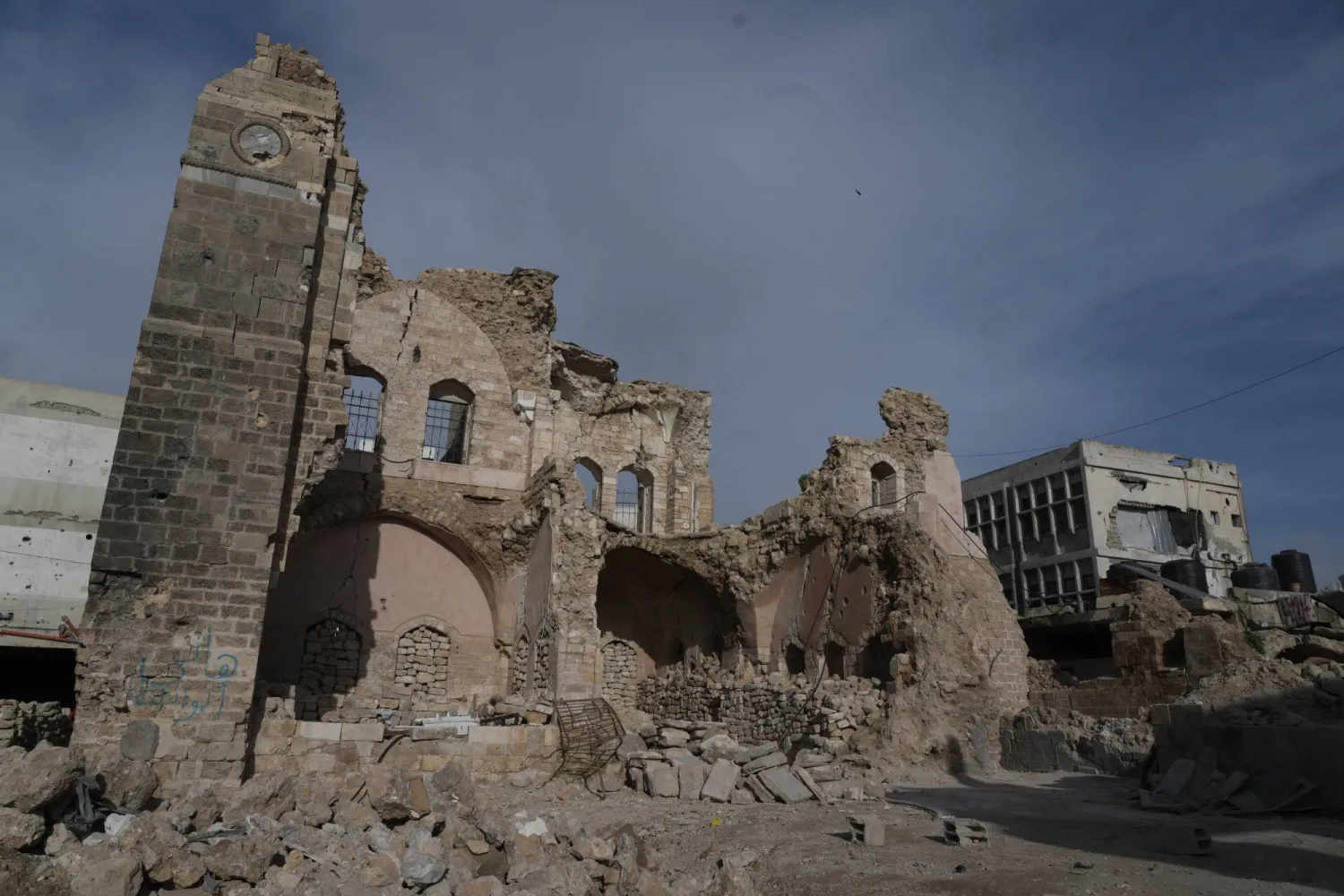Disputes between Arab countries and differences over the reinstatement of Syria are threatening to postpone the upcoming Arab League summit, scheduled for Algeria in November.
Algeria has been preparing to host the 31st summit since 2019. It will be the first in-person summit for Arab leaders since the coronavirus pandemic.
President Abdelmadjid Tebboune stressed earlier this month that the summit will be a success “because it seeks Arab reconciliation after years of division and fragmentation.”
Syria’s return?
Algeria politician and lawyer Mohammed Adam Mokrani noted, however, that Syria’s return to the Arab fold will be among the main hurdles at the summit.
In remarks to Asharq Al-Awsat, he said that Algeria has for months been supporting Syria’s return seeing as it is founding member of the Arab League.
Syria was suspended in wake of its regime’s brutal crackdown on peaceful protests that broke out in 2011.
Syria’s return has not been advocated by all Arab countries. Mokrani suggested the issue could be put up to a vote during the summit so that it would not remain as a sticking point or a reason to postpone the meeting.
Moroccan former MP Adil Benhamza described the situation in the Arab world as “extremely divided”.
He told Asharq Al-Awsat that the pandemic was used as an excuse to postpone summits in the past, but it can no longer be used to justify repeated delays.
Several other issues could prompt the delay, among them the dispute over Syria’s return, he added.
Dr. Hassan Abou Taleb, of the Al-Ahram Center for Political and Strategic Studies, said it would be “very difficult” to hold the summit given the “major disputes over how to handle Syria and Algeria’s efforts to end the boycott against it.”
There is no Arab consensus over this issue and leaders appear unwilling to even discuss it at the summit, he noted.
Hussein Haridy, Egyptian former Assistant Foreign Minister for Asia, Australia, New Zealand and Pacific Affairs, said it was “difficult to predict” whether the summit will be held on time.
He told Asharq Al-Awsat that numerous developments have taken place in the Middle East since the last regular summit was held, so the Algeria meeting must be held to allow Arab leaders to agree on how to address them.
“Failure to hold the summit on schedule will send an unwanted message to regional and international powers that Arab leaders lack the joint will to address regional and international developments and pressing financial and political affairs,” he warned.
However, he said that Algiers’ insistence on reinstating Syria’s membership “in spite of the opposition of influential Arab powers” may ultimately lead to the postponement of the summit.
On the official level, Arab League Assistant Secretary General Hossam Zaki had last month stated that no specific time can be set regarding Syria’s return to the organization.
Its return is not imminent, but it is not far either, he said.
An Arab diplomatic source said this position has not changed.
Speaking on condition of anonymity to Asharq Al-Awsat, the source confirmed that preparations are still underway to hold the summit on schedule in spite of Arab disagreements.
Maghreb tensions
Another sticking point at the summit is the tensions between Morocco, Algeria and recently Tunisia.
Rabat and Algiers had severed relations in wake of the dispute over the Western Sahara.
Over the weekend, Morocco summoned its ambassador to Tunis after Tunisian President Kaies Saied received Polisario Front movement chief Brahim Ghali.
Morocco said Tunisia's decision to invite Brahim Ghali to a Japanese development summit for Africa that Tunis is hosting this weekend was “a grave and unprecedented act that deeply hurts the feelings of the Moroccan people”.
Tunisia, in response to Morocco's decision, announced it was recalling its ambassador to Rabat for consultation.
Tunisia's ministry of foreign affairs said in a statement early on Saturday that the country maintains its complete “neutrality over Western Sahara issue in compliance with international legitimacy”.
In a terse foreign ministry statement, Morocco said it would no longer take part in the Africa summit. It also accused Tunisia of having recently “multiplied negative positions” against Morocco, and said its decision to host Ghali “confirms its hostility in a blatant way”.
Abou Taleb said relations between the Maghreb countries are “very strained”, posing a challenge for plans to hold any Arab summit.
The tensions may lead to countries even lowering their level of representation or calling for the delay of the meeting altogether, he added.
“The Arab region is boiling with tensions and crises, casting doubts that the summit will be held as scheduled,” he stated.
Mokrani and Benhamza speculated that Morocco may even skip the summit given its dispute with Algeria.
The diplomatic source stressed that Algeria was determined to hold the summit and would not allow disputes to hinder it even if it had to make concessions over Syria’s reinstatement.
Algeria wants to use the summit to demonstrate its “strong return to the international and regional scene. It may therefore abandon its demand over Syria to avoid being held responsible for the failure of the summit,” he explained.












